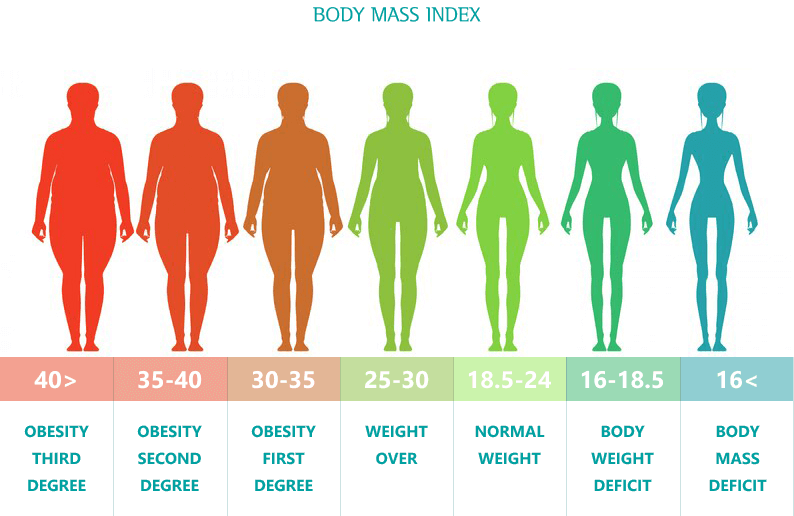
For most people, managing body weight is a huge challenge, especially if you have a significant amount to lose. With thousands of weight loss products and gimmicks to choose from, it’s easy to become overwhelmed, and you may end up wasting money on products that don’t live up to their hype.
Two products backed by research that are helping millions to lose weight are semaglutide and lipotropic B. Both are injectables, and each has its own mechanisms of action. Learn more about both products, and find out which weight loss injection is best for your weight loss journey.
Why Are Modern Humans So Fat?
Fat is a storage fuel that your body squirrels away for future energy demands. But because your body is hard-wired to conserve energy, it’s a lot easier to put on weight than it is to lose it. Unlike our ancient ancestors who relied on seasonal produce and wild game to meet their nutritional needs, modern humans living in advanced economies have unlimited access to an abundance of food from around the world.
Highly processed foods make up a large percentage of modern daily consumption. Processed foods are both inexpensive and highly palatable, but they contain chemical substances called obesogens – endocrine disrupting contaminants that promote fat storage. In fact, some obesogens like highly processed seed oils actually change the chemistry of your fat cells, making them more resistant to weight loss strategies. In addition, processed foods tend to be high in addictive sugar and simple carbohydrates that your body easily converts to fat.

Another factor driving modern-day obesity is a dramatic reduction in physical activity. Improvements in transportation, advancements in technology, and socio-cultural factors have made it easy to adopt a sedentary lifestyle. When coupled with easy access to tasty food, lack of physical activity upends the energy equation, with more energy consumed than expended, prompting the body to store excess energy as fat.
A successful weight loss strategy requires lifestyle modifications that can be extreme for anyone caught up in today’s web of chronic stress, fast food and sedentary living. In addition to deliberately expending more energy than you consume through physical activity, you need to be mindful of obesogens in your diet and choose nutrient-dense whole foods that optimize cellular metabolism.
Semaglutide and Lipotropic B are two injectable compounds designed to help you lose weight, but both are more effective if you make important lifestyle changes.

Lipotropic B vs Semaglutide Mechanisms of Action
Losing excess body fat is a metabolic process governed by a series of biochemical reactions. In recent years, scientists have been able to hack weight loss mechanisms and identify compounds that promote fat metabolism.
Lipotropic B
Lipotropics are compounds of nutrients that help your body to break down and metabolize stored body fat. They often contain high dose vitamin B12, along with other B vitamins and amino acids. Many also contain MIC (a combination of methionine, inositol, and choline). They work by stimulating the release of fatty acids into your bloodstream, to be used for energy metabolism in the cells. Lipotropic B is most effective when supported by exercise and dietary modifications.
Semaglutide
Semaglutide acts by mimicking the effects of GLP-1, an incretin hormone that regulates appetite and digestion. Incretins are released by your digestive tract after eating, triggering the release of insulin, blocking sugar production, and slowing the digestive process. They give you a feeling of fullness, reducing your appetite and causing you to eat less. Like Lipotropic B, semaglutide works best when combined with diet and exercise.
If you are considered overweight but not clinically obese and you have no metabolic conditions, Lipotropic B may be your best option for weight loss because it is a nutrient and not a drug, and compared to semaglutide, there are no side effects of Lipotropic B. At the same time, semaglutide injections are approved by the FDA for type 2 diabetics and obese patients at risk for heart disease. If you have a substantial amount of weight to lose, your doctor can help you decide if semaglutide is a good choice for you. It is important to bear in mind that semaglutide is a drug, and comes with certain risks and side effects.
BMI vs Body Fat Percentage for Classifying Obesity
Most doctors rely on body mass index (BMI) – a 200 year-old method derived by dividing body weight by height – to categorize obese patients. But research shows BMI to be highly inaccurate in assessing total body fat, especially in women. In one study on measuring adiposity, BMI misclassified 25% of men and 48% of women. Recently, the American Medical Association (AMA) adopted a new policy cautioning doctors about relying on BMI alone to categorize patients and prescribe treatments.

Body fat percentage is a more accurate indicator of obesity, taking into account the ratio of a person’s body fat to lean mass. According to Penn Medicine, women with more than 30 percent body fat and men with more than 25 percent body fat are considered obese. There are several methods for calculating body fat percentage, but they are more complex than a simple math equation, and most doctors opt for simplicity over accuracy to classify obesity.

Semaglutide and Lipotropic Injections Together can Accelerate Weight Loss
Lipotropic B is made up of nutrients and can be safely used without a medical prescription, while semaglutide is a controlled substance that requires a doctor’s prescription.
The FDA provides doctors with the following guidelines to qualify patients for semaglutide:
- Adults with type 2 diabetes mellitus, to lower blood sugar levels.
- Adults with type 2 diabetes mellitus and confirmed heart disease, to reduce the risk of cardiac events
- Adults and children over 12 years with obesity and weight-related medical problems.
- The FDA recommends diet and exercise for patients taking semaglutide.
Taking semaglutide and lipotropic injections together can help to accelerate weight loss by providing essential nutrients that support the action of semaglutide, while encouraging insulin production and suppressing appetite. However, you should consult your doctor before combining weight loss injections.
Get Lipotropic B and Semaglutide Weight Loss Injections in NYC
Slimming down is never easy, especially when you have a lot of weight to lose. Invita Wellness is here to help with products and services that promote weight loss and support total body health. In addition to Lipotropic B and semaglutide injections, we offer tirzepatide, NAD+, cryotherapy, and a host of nutrient IV cocktails to enhance your physical and cognitive performance, promote longevity and improve your quality of life.
Contact Invita Wellness today to set up your first appointment for weight loss injections in Manhattan, NYC.
SET UP YOUR appointment for weight loss injections
contact InVita Wellness today
Book Now
456 Broadway 2 Floor, New York, NY 10013, USA
Resources
Kladnicka, Iva, et al. “Obesogens in foods.” Biomolecules 12.5 (2022): 680.
https://www.mdpi.com/2218-273X/12/5/680
Rubino, Domenica, et al. “Effect of continued weekly subcutaneous semaglutide vs placebo on weight loss maintenance in adults with overweight or obesity: the STEP 4 randomized clinical trial.” Jama 325.14 (2021): 1414-1425.
Effect of continued weekly subcutaneous semaglutide vs placebo on weight loss maintenance in adults with overweight or obesity: the STEP 4 randomized clinical trial
Shah, Nirav R., and Eric R. Braverman. “Measuring adiposity in patients: the utility of body mass index (BMI), percent body fat, and leptin.” PloS one 7.4 (2012): e33308.
https://www.ncbi.nlm.nih.gov/pmc/articles/PMC3317663/